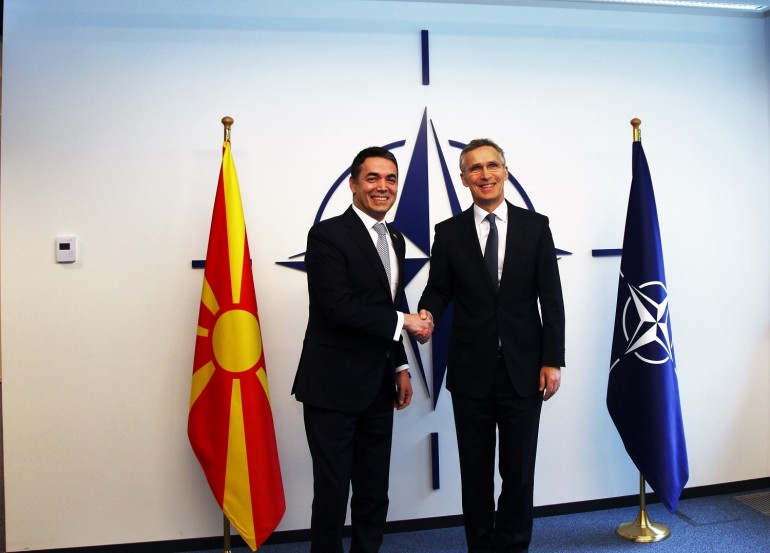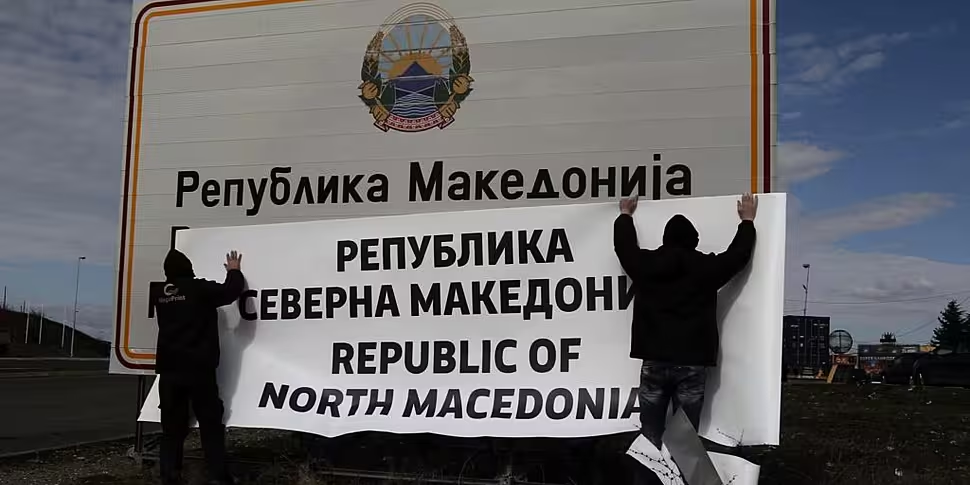The Former Yugoslav Republic of Macedonia has officially changed its name.
As of Tuesday, the small Balkan country is known as the Republic of North Macedonia, or simply North Macedonia.
The change ends a naming dispute that has roiled with neighbouring Greece for some 28 years.
It also secures the country's accession into NATO.
A series of adjustments - such as new road signs and updated passports - will be made gradually.
While the government website has already been changed to reflect the new name.
The country's Prime Minister Zoran Zaev said: "We are becoming the 30th full member of NATO. We are becoming a safe country.
"This is a new page in our history. Long live the Republic of Northern Macedonia".
Иднината веќе не ни е судбина. Успеавме! Нашата татковина е на вистинскиот пат. Стануваме 30-тата полноправна членка на #NATO. Стануваме безбедна земја. Ова е нова страница во нашата историја.
Да живее Република Северна Македонија! 🇲🇰#WeAreNATO pic.twitter.com/TiddOlloUa— Зоран Заев (@Zoran_Zaev) February 12, 2019
The country's Foreign Minister Nikola Dimitrov said: "May today be the beginning of a long friendship between Greece and North Macedonia.
"We can't change our past, but we can and we will shape our future of friendship, partnership and cooperation."
We have just exchanged the final note verbale: Prespa Agreement enters into force! May today be the beginning of a long friendship between Greece and North Macedonia. We can’t change our past, but we can and we will shape our future of friendship, partnership and cooperation.
— Nikola Dimitrov (@Dimitrov_Nikola) February 12, 2019
The dispute stretches back to 1991, when the former Yugoslav Republic of Macedonia declared its independence from Yugoslavia and announced its intention to be named 'Macedonia.'
Neighbouring Greece refused to recognise the name, insisting that only the northern Greek region of the same name should be called Macedonia.
It also argued that the former Yugoslav Republic's use of the name was a challenge to Greek sovereignty.
 NATO Secretary-General Jens Stoltenberg and Republic of Macedonia Foreign Minister Nikola Dimitrov sign the NATO Accession Protocol | Image: Republic of Macedonia Foreign Ministry
NATO Secretary-General Jens Stoltenberg and Republic of Macedonia Foreign Minister Nikola Dimitrov sign the NATO Accession Protocol | Image: Republic of Macedonia Foreign MinistryAlthough more than 100 countries formally had recognised the country as Macedonia, the United Nations and other international bodies used the term Former Yugoslav Republic Of Macedonia.
The North Macedonia parliament and the country's citizens approved the change in a referendum held in September 2018.
The Greek parliament also approved the name change last month, a move which was welcomed by United Nations Secretary-General António Guterres.
Matthew Nimetz, the UN chief's personal envoy, had been engaged with the process for nearly two-decades.
Mr Nimetz said the historic Prespa Agreement between two neighbours "opens the door to a new relationship between them and ushers in a new era for the consolidation of peace and security in the Balkans."









